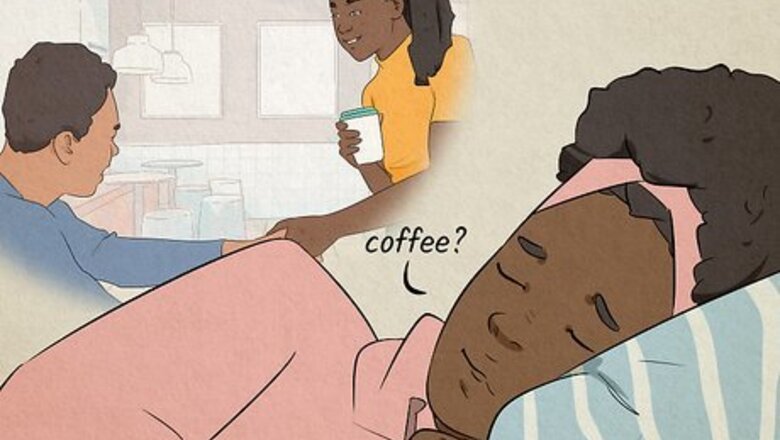
views
- If you’ve been repressing any emotions, then you might sleep talk as a way to express yourself in an unfiltered way.
- You might use sleep talking to announce your intentions and manifest what you desire.
- Sleep talking might revolve around a certain theme, like love or a fear of heights.
- If you have PTSD, anxiety, or depression, then you may be more likely to sleep talk.
Spiritual Meanings
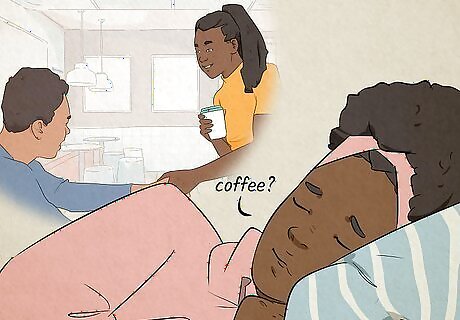
You’re getting ready to take action in life. In your conscious, waking life, you might have a lot of inhibitions that hold you back from fully realizing your ambitions. Maybe you want to take a leap of faith or go outside your comfort zone. For example, maybe you want to ask a good-looking stranger out on a date. Your sleep talking can reveal what your true desires are, even if you never mention them when you’re awake. In the above situation, you might utter a phrase like, “coffee?” or a full sentence, like “I saw you from across the room…I wanted to introduce myself.”
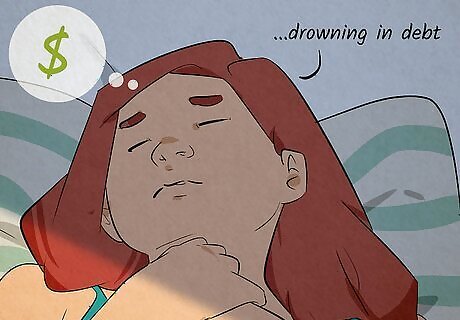
You’re expressing pent up emotions. When you’re awake, you might think that some feelings are too inconvenient or uncomfortable to admit to or talk about. The more that you repress your emotions, the more likely that they’ll reemerge in your dreamworld. When you sleep talk, you might finally give yourself an outlet to say what’s been weighing on your mind. You might not even consciously be aware of what you’re repressing. If you record yourself, you might learn a lot more about what’s been bothering you. For example, you might hear yourself mumble, “...drowning in debt…” and realize that you’ve been stressed about money issues. If you feel like you're falling when you are about to drift off to sleep, then it may be a sign that you feel a loss of control in your life.
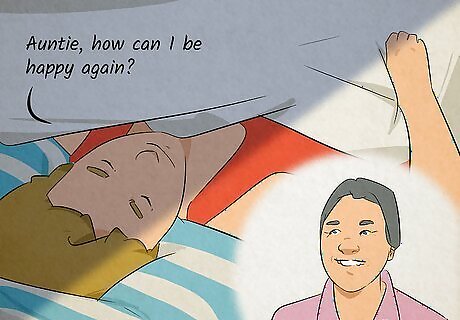
You’re communicating with your spirit guides. When you're asleep, you might access other dimensions. When you are no longer fully in the “3D world,” which is your waking reality, you might be able to convene with supernatural beings, like angels and ancestors. In these cases, you might sleep talk to have conversations with them and ask them for divine advice. For example, if you have a deceased aunt who you’ve always cherished and respected, you might say their name (“Aunt Kay!”) or even pose a whole question like, “Auntie, how can I be happy again?” If you keep waking up at the same time, like 2:22 A.M. or 3:00 A.M., then you might be seeing angel numbers. These may signify that your spirit guides are trying to talk to you. For example, seeing "2:22" might be their way of saying you'll meet your twin flame.
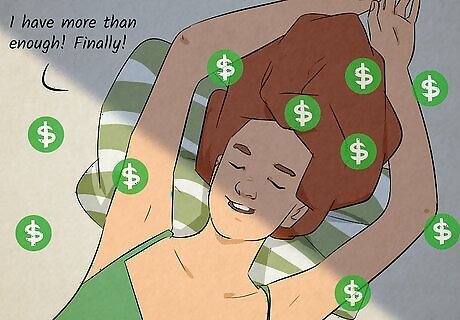
You’re in the middle of manifesting your desires. When you’re asleep, you’re in a “theta state,” a type of flow state where you think about lots of possibilities and where you are more likely to believe that anything can be accomplished. You'll also shed a lot of doubts and self-limiting beliefs. When you sleep talk, you might announce your heart’s dearest wish and get one step closer to actualizing it. If you want to manifest financial abundance, you might say, “I have more than enough! Finally!” To make the most of a “theta state,” journal or announce what you’d like to manifest so you'll prime yourself to dream about a certain concept. For instance, write down, “I would like to meet a soulmate.” In your sleep, you might meet a love interest and say something like, “I’ve been waiting my whole life for you.”

You’re wandering around in a parallel universe. Once you fall asleep, you’re no longer in the same reality. Instead, your spirit wanders and travels to other dimensions. For example, if you’re a high-paid lawyer, you might leap to a parallel universe where you’re a teacher who’s literally being paid in peanuts. Your sleep talking can give you a clue about where you’ve found yourself. In the aforementioned scenario, you might declare something like, “Ok, class, listen up to what I’m saying! I’m not paid enough peanuts to put up with this nonsense!” Instead of a more absurd parallel universe, you might travel to another dimension that’s incredibly meaningful to you. For example, you might teleport to a world where you’re reunited with an ex. You might utter, “I’ve missed you so badly. But now you’re here!”
What is sleep talking?
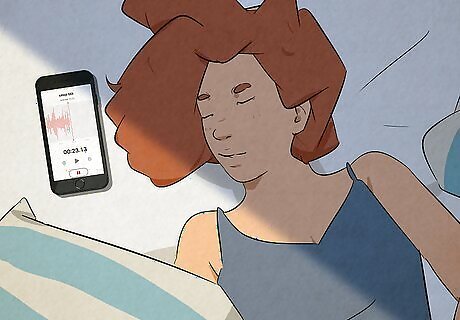
“Somniloquy,” or sleep talking, is speaking while you’re asleep. Typically, you’re not even aware that you’re making any statements in your sleep. You might just utter a phrase here and there, or you might ramble at length. Sometimes, someone might bring your night-time habit to your attention if they’re sleeping next to you. If you want to check if you’re sleep talking, you can use an app—like “Sleep Talk Recorder”—to listen to what you might be saying. Your sleep talking might feature a common theme. For example, you might speak about rock-climbing or a fear of heights for 3 nights in a row. You may be more prone to sleep talking when you’re in a certain emotional state. For example, you may speak in your sleep when you’re anxious, restless, or frustrated.
What causes sleep talking?
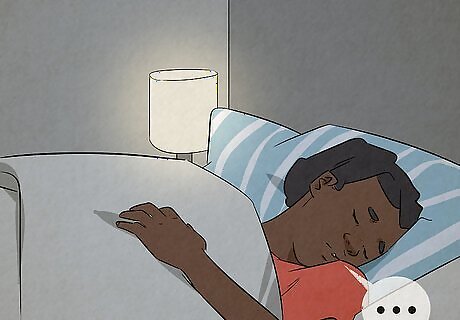
When you're in a deep state of sleep and dreaming, you sleep talk. Typically, when you’ve entered a REM (rapid eye movement) state of sleep, you’re temporarily paralyzed: this natural occurrence keeps you from harming yourself by acting out your dreams. However, even during REM sleep, you’re able to mumble or speak. REM sleep is connected to vivid dreams, so you might sleep talk about what you’re “seeing” or experiencing. Alternatively, you’re not falling into REM sleep. Sleep talking is considered a “parasomnia,” or an abnormal sleep behavior. If you have PTSD, anxiety, or depression, then you might struggle to fall into a deep sleep. Instead, you might be half-awake and go through night terrors or simply ramble about what’s worrying you and robbing you of quality sleep.
Do I tell the truth when I sleep talk?
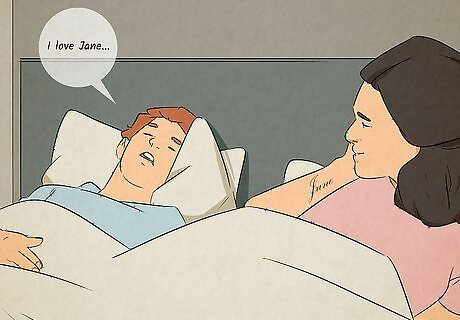
There's usually some truth to what you say when you sleep talk. There's no need to worry that you'll spill all your secrets when you're asleep. Studies show that what you utter when you sleep talk is similar to what you reveal when you're awake. So, if you want to keep information under wraps, you'll probably manage to stay silent about it. When you sleep talk, you'll likely bring up details that you're comfortable sharing with confidantes. According to research, you're 3 times more likely to be negative and 800 times more likely to curse when you sleep talk. In other words, your bed partner might learn what's been bothering you lately.
Is sleep talking dangerous?
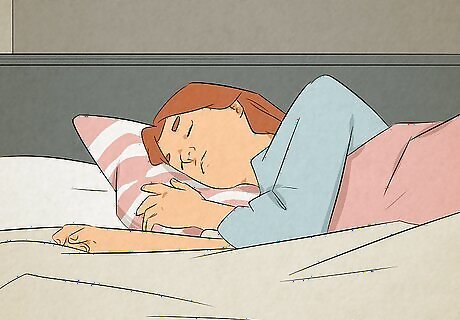
Sleep talking is harmless and doesn't put you in any physical danger. As long as you're in bed and not sleep walking in addition to sleep talking, then your nighttime habit doesn't pose a threat. It's not a sign of an illness nor are you at the mercy of any malevolent forces. You might've just welcomed in a curious otherworldly being that is trying to communicate with you. If you'd prefer not to have a supernatural guest, just take care not to commune with spirits before bed.




















Comments
0 comment